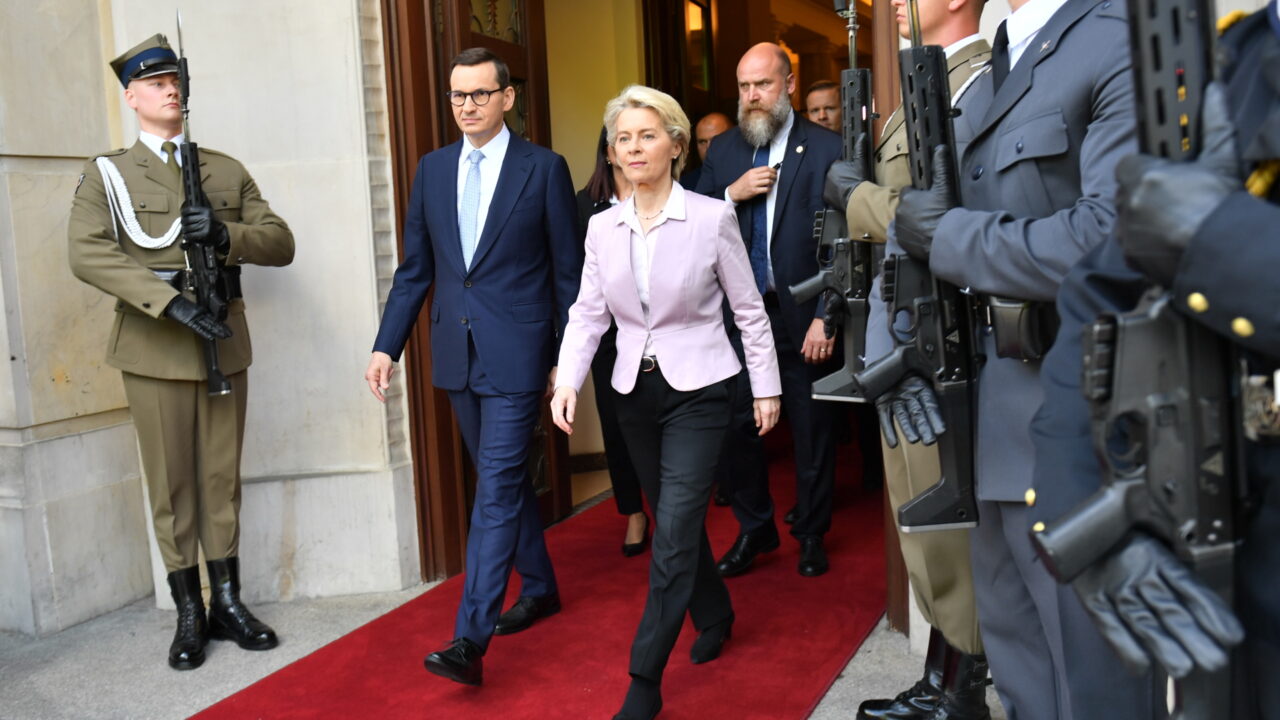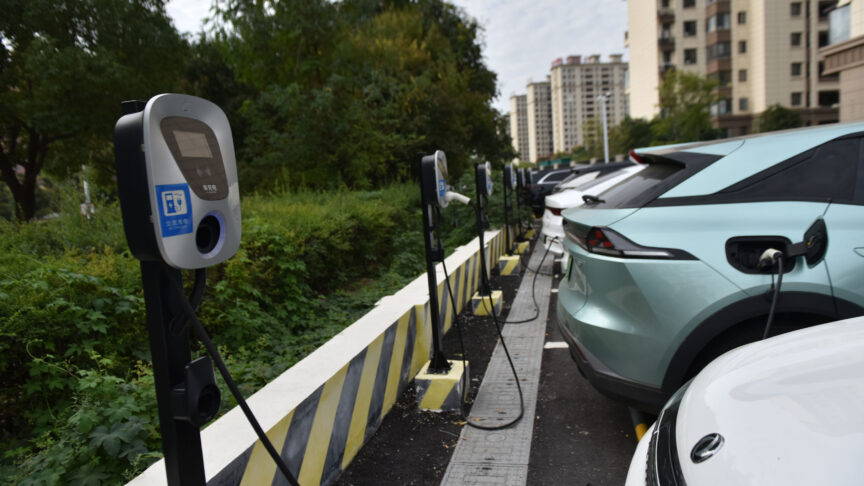Rule of three: How unfinished business threatens the EU
Russia’s war on Ukraine has forced the EU to deal with three major problems it had long avoided. The bloc can only shape the global order if it upholds the rule of law at home
The European Union has proven resilient in its response to Russia’s war on Ukraine. The bloc preserved its unity despite facing several obstacles created by Hungary’s notoriously disruptive prime minister, Viktor Orban. Member states came together to support Ukraine – which many EU citizens regard as a distant and unknown country – by taking decisions on energy security that would shape their future. So far, so good.
But the war has also revealed the EU’s vulnerabilities and served as a reminder of troublesome unfinished business. For years, EU member states were at pains to dodge key decisions that would require them to confront painful truths. Now, the war has put the spotlight on the EU’s three biggest internal problems. European leaders can no longer resort to their usual ambiguity: mismanagement of the situation could easily sabotage the EU’s response to the war in Ukraine.
In a game of chicken, the Commission is pretending to play chess
The first problem concerns the rule of law. European Commission President Ursula von der Leyen felt the heat of this issue in the European Parliament on 7 June. Many MEPs were furious that the Commission approved Poland’s national recovery plan despite the Polish government’s continuing attacks on the independence of the judiciary. Von der Leyen’s critics claim that, in view of the Russian war of aggression, she has sacrificed the EU’s values to maintain its unity. Theoretically, Poland will only receive EU funding under the plan if it resolves the main problems in the judiciary by the end of June. The country needs to completely reform its disciplinary system for judges, which violates the principle of judicial independence and EU treaties, according to a verdict of the Court of Justice of the European Union from July 2021. The Polish national recovery plan agreed by Warsaw and Brussels includes concrete commitments in that regard. However, the Polish government is unlikely to fulfil them. Instead, the Commission looks set to start disbursing the €35 billion allocated to Poland after fudging the issue.
Only recently, Poland’s ruling Law and Justice party placed its own people – including friends of Minister of Justice Zbigniew Ziobro and individuals involved in smear campaigns against judges – on the National Council of the Judiciary, the main constitutional body responsible for preserving judicial independence. They will now oversee the Polish judicial system and nominate all Polish judges in the next five years.
According to the Court of Justice of the EU, these politicised appointments violate EU treaties and values. In ruling on the appointments, the court defined a European standard of judicial independence. But, in Poland, it is a serious crime to enforce this fundamental standard. Polish judges face disciplinary charges, suspensions, and other punishments whenever they refer to it. The Polish government’s new judicial reform, celebrated by the Commission as the foundation of a deal on the recovery plan, has not addressed this absurdity. In a game of chicken, the Commission is pretending to play chess.
In any case, the pressure of war has forced the EU into a decision on the rule of law saga. It appears that Warsaw will receive funding under the recovery plan even while it ignores the verdicts of the EU’s highest court and mocks its insistence on respect for European norms and values. This would damage the authority of both the court and the Commission. The EU would have lost the battle over the rule of law at a moment at which it had never been closer to victory. And such a failure would have repercussions far beyond the legal sphere. Politically, it would make it even more difficult to solve the EU’s two other biggest problems.
One of them concerns enlargement policy – which, once a success story, has become a source of frustration and denial. The EU has been dishonest in handling the membership aspirations of Balkans countries such as North Macedonia and Albania, which have been unable to begin accession negotiations despite meeting the formal requirements for doing so. More importantly, the EU has been unable to prevent them from becoming disenchanted with the European project.
Ukraine’s application for membership is forcing the EU to finally take a stance on its geopolitical future. If the EU granted candidate status to Ukraine, this would be a powerful symbolic move. If it refused to do so, this would signal the bloc’s unpreparedness for the geopolitical contest it faces. To shape the new global order, the EU will need to recommit to its enlargement policy as a transformative strategic project for the next decade.
Here is where the rule of law conundrum comes in once again. Unless the EU resolves its most serious internal crisis, there will be no appetite for enlargement and no credible enlargement policy. Enlargement sceptics will prevail, because accepting new member states appears suicidal if the EU is unable to prevent the kind of democratic backsliding that has occurred in Hungary and Poland.
The same is true for the EU’s third big problem, which concerns financial solidarity. Russia’s war on Ukraine has sent a huge economic shock through the EU – one that affects some member states far more than others. As during the worst days of the pandemic, the issues of common debt and the distribution of financial burdens loom large over Europe. The EU should not leave it to national governments alone to absorb the costs of the energy crisis, host Ukrainian refugees, or support the reconstruction of Ukraine. Nor should member states spend so little on defence at the EU level.
To meet these challenges and limit the fallout from the war, the EU should begin a common effort of a similar size to the coronavirus fund. The more it becomes clear that member states can disregard commonly agreed rules, the more unlikely it is that the EU will gain the resolve to achieve this. Solidarity requires trust, and trust requires solidarity.
The Commission still has the power to ensure that the war in Ukraine strengthens the EU. It should not hesitate to use it.
The European Council on Foreign Relations does not take collective positions. ECFR publications only represent the views of their individual authors.



